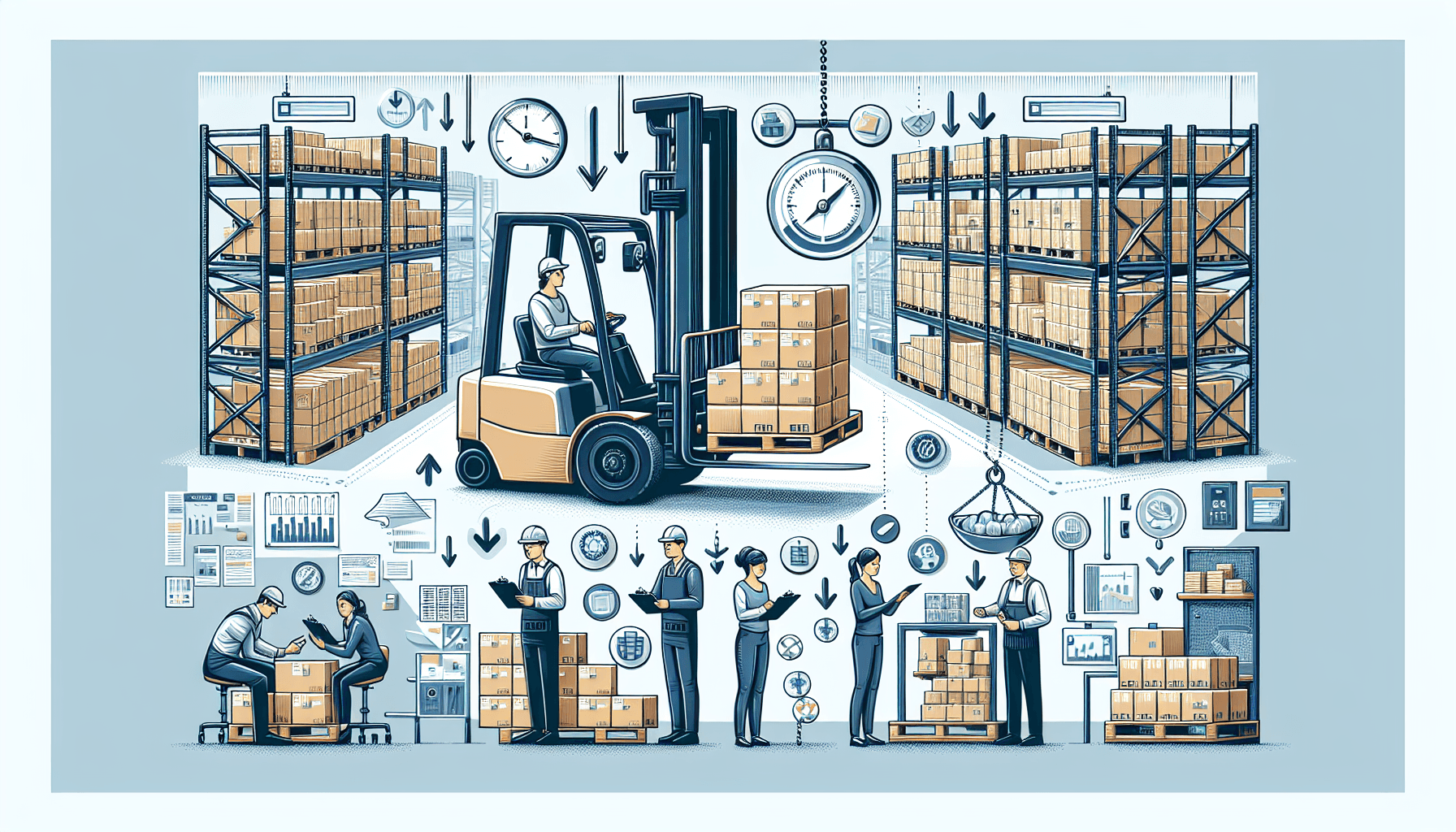Managing a forklift fleet is an essential part of warehouse operations. Forklifts play a crucial role in transporting goods, organizing inventory, and maintaining efficiency within the warehouse. However, ineffective management of forklifts can lead to unnecessary costs, reduced productivity, and safety hazards. That’s why implementing an efficient forklift fleet management system is vital for warehouse optimization.
The Importance of Forklift Fleet Management
Proper forklift fleet management can have a significant impact on operational costs, productivity, and safety within a warehouse. Here are some key reasons why investing in forklift fleet management is crucial:
- Cost Reduction: Effective forklift fleet management allows for optimized fleet size, reducing the number of unnecessary forklifts. This leads to lower maintenance costs, fuel expenses, and equipment purchases. Fleet management systems also provide insights into forklift utilization, enabling data-driven decision making to identify areas of improvement and cost-saving opportunities.
- Improved Productivity: With forklift fleet management, businesses can keep track of forklift usage, identify bottlenecks, and streamline operations. The ability to monitor individual forklift performance and allocate resources efficiently helps optimize workflow, prioritize tasks, and reduce idle time. This leads to increased productivity and faster turnaround times.
- Enhanced Safety: Forklift accidents can result in injuries, damage to inventory or equipment, and possible legal repercussions. A robust fleet management system enables proactive measures to ensure compliance with safety regulations, track maintenance schedules, and monitor operator behavior. By identifying potential safety risks, businesses can take corrective actions, provide appropriate trainings, and create a safer working environment.
Key Elements of Forklift Fleet Management
To achieve optimal fleet management, businesses need to consider the following key elements:
- Fleet Size Optimization: Determining the ideal number of forklifts required based on the current and projected workload is essential. Forklift fleet management systems provide valuable insights into utilization rates, helping businesses right-size their fleet to avoid underutilization or overutilization of equipment.
- Preventive Maintenance: Regular maintenance is crucial for ensuring the longevity and efficiency of forklifts. A fleet management system facilitates scheduling and tracking of maintenance tasks, such as routine inspections, servicing, and part replacements. By proactively addressing maintenance needs, businesses can minimize unexpected breakdowns, costly repairs, and operational disruptions.
- Operator Training and Certification: Well-trained operators are vital for safe and efficient forklift operations. Forklift fleet management systems assist in tracking and managing operator certifications, ensuring that only qualified personnel operate the equipment. Regular training programs can be scheduled and documented, ensuring compliance with industry standards and regulations.
- Data Analytics: Forklift fleet management systems generate valuable data on fleet utilization, productivity, and maintenance history. Analyzing this data helps identify trends, uncover inefficiencies, and make informed decisions. By leveraging data analytics, businesses can continuously optimize their fleet operations, enhance cost-effectiveness, and drive better overall warehouse performance.
At HCO Innovations, we offer comprehensive forklift fleet management solutions to help businesses optimize their warehouse operations. Our advanced technology and expertise enable companies to reduce costs, improve productivity, and enhance safety within their forklift fleet.
Conclusion
Efficient forklift fleet management is a critical component of warehouse optimization. By investing in forklift fleet management systems, businesses can achieve cost reduction, improved productivity, and enhanced safety. The key elements of fleet management, including fleet size optimization, preventive maintenance, operator training, and data analytics, contribute to the overall success of warehouse operations. Collaborating with a trusted provider like HCO Innovations can help businesses unlock the full potential of their forklift fleet and drive operational excellence.

